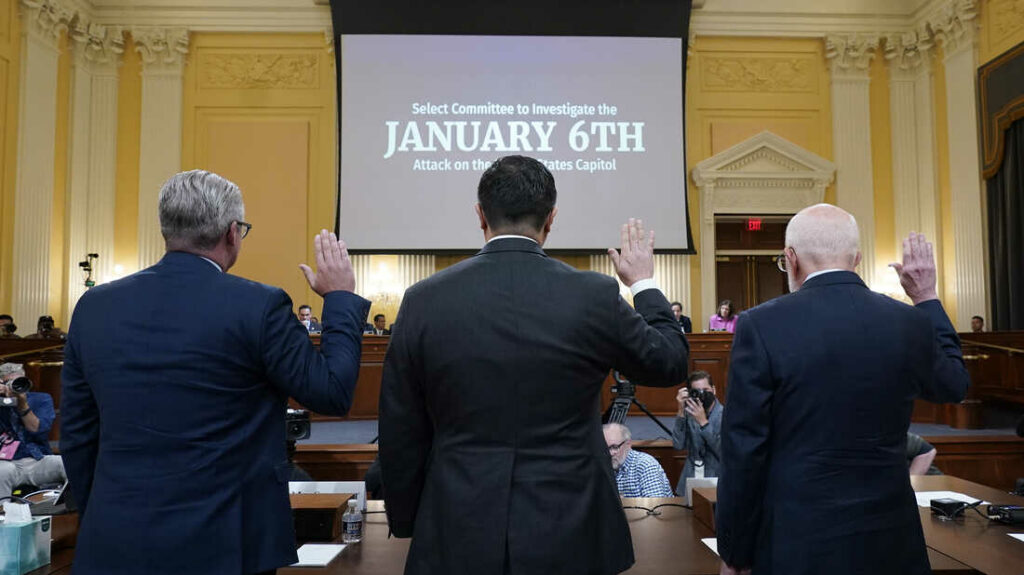
In her remarkable book, The Reproduction of Evil, psychologist Sue Grand highlights the role of the onlooker. Evil, she points out, is often the result of harm inflicted on a propagator, trauma and abuse endured by the propagator at the hands of others that gets passed on to new victims, some of whom go on to become propagators of evil themselves. But rather than being blameless, she notes, onlookers are complicit in the reproduction of evil.
To be aware of evil, to do nothing and then to forget is the particular venue of the onlooker, who’s inaction and willingness to forget enables the reproduction of evil. With their silence, onlookers create the void into which violence, betrayal, and tyranny step. This process is evident in the testimony taking place at the hearings in the House of Representatives surrounding the events of January 6, 2021. Amid known threats of violence and the presence of weapons, many of those surrounding former President Trump refused to intercede, allowing conditions to emerge that resulted in the violent and deadly storming of the capitol.
Bystanders often believe that their inaction leaves them innocent, that failure to act is no act at all. To the contrary, the inaction and forgetfulness of the bystander is a solid link in the chain of evil, essential to its success and continuance. This is true personally and socially; the failure to act in the face of evil all but guarantees evil’s victory.
Standing up for what’s right is not always easy. Overcoming fear of conflict, intimidation, and threats requires courage. Speaking out itself is extremely difficult for many, and public speaking is ranked first among people’s greatest fears. When facing acts or behavior that offend decency, safety, or health, however, each of us at some points in our lives must take a stand.
Not being an onlooker requires more from us than just courage; it demands we stay involved, engaged, and educated about what’s going on around us. That’s the hardest work, facing up to the problems that confront us despite the deep discomfort it creates. The world – locally, regionally, nationally, and globally – is constantly in turmoil, grappling with basic issues like hunger, housing, and health while debating issues of politics, religion, law, and culture. As emotional beings, staying engaged means feeling upset, angry, depressed, hopeful, and a mixture of these and other emotions. It’s exhausting, but not nearly as exhausting as finding oneself, one’s family or one’s friend as the victim of evil.
It’s been gratifying to hear witnesses before congress expressing alarm over the events of January 6, but also raises the question, “why speak out now and not before?” It’s true that the President of the United States is the most powerful person in the world, and that fact alone is intimidating. When faced with evil, however, there’s only two possible responses: act or ignore it. The former risks career, standing in the community, condemnation by one’s peers, and even threats of death. The latter risks the measure of history and the kind of legacy we leave behind.
Having failed to take a stand, we can use our powers of denial to convince ourselves that we had no choice, that any objections raised would have been ignored, that we couldn’t make a difference, that the actions of an individual “don’t amount to a hill of beans in this crazy, mixed-up world.” Sorry, but excuses don’t count.